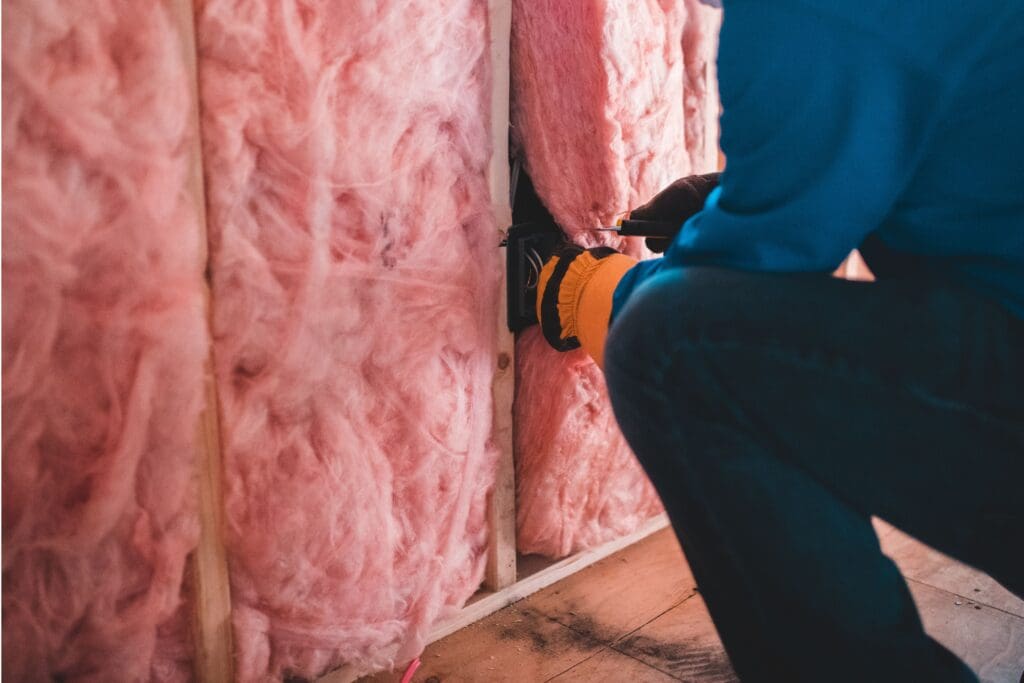As a landlord, you are responsible for making sure your rental is healthy and safe to be lived in by your tenants. The government has introduced measures to ensure all rental properties meet a minimum standard for warmth and insulation and has a deadline in effect for all residential rentals to comply with the new standards.
As of the 1st of July 2019, all rental homes must meet the insulation standards set by the Healthy Homes Act, or risk being handed up to a $4,000 fine, and then pay for the work to be completed as well. This means all ceiling and underfloor insulation will be compulsory in all rental homes from 1 July 2019.
Despite the deadline looming it’s estimated that around 220,000 rental properties in New Zealand may still not be compliant with these new government Healthy Home standards. And with houses rushing to meet the deadline this means specialised tradespeople have limited availability to take on new business ahead of the deadline.
The head of insulation New Zealand says the insulators that belong to his organisation – the vast majority – can only insulate an estimated 50,000 to 60,000 houses a year. This leaves a potentially massive shortfall in skilled people able to help landlords meet the July deadline.
How to identify if your rental does not have the appropriate insulation:
Landlords must make all reasonable efforts to find out what insulation is in their rental property already. This can be done by physically looking under and in the house or engaging a professional to do an assessment, or checking the council building file.
If you’re not sure of the location, type and condition of the insulation, we advise you to seek advice from a professional insulation installer. If you are comfortable doing it yourself then learn more about how to do this safely by checking out the Insulation Safety section of the Tenancy Services website.
Look for specialists that are part of the Insulation Association of NZ if you want the peace of mind of a regulatory body behind the services you receive.
Worried about the Cost:
In June 2018 the government announced that home insulation grants will only be given to lower-income homeowners and their landlords. And with only 20,000 available it’s going to be up to the vast majority of landlords to fund this upgrade themselves.
If you are worried about the cost of insulating your rental or multiple rentals then your local council may be able to help. Landlords may be eligible for help from their local council. A number of councils allow homeowners to add the cost of insulation to their rates and pay it back over about nine years. It pays to get in touch with your local council for more information about this.
However, it’s also worth doing some further maths. Houses that aren’t compliant might have to pay the $4,000 fine AND conduct the necessary upgrades, at a significant cost. To say it will be cheaper to simply do the work is an understatement.
What is an Insulation statement and why are they important:
An insulation statement is a document that has been filled out by the landlord. It is compulsory to have the insulation statement included in all tenancy agreements. This is another element of insulation legislation that can land you in financial hot water as failure to supply an insulation statement could cost the landlord $500. Landlords must disclose whether there is insulation in the rental home, where it is, what type and what condition it is in, so tenants can make an informed decision.
“Completing the above Tenancy Services insulation statement template will meet all the requirements for insulation disclosure under the Residential Tenancies Act. The landlord can attach an assessment from a professional to the tenancy agreement, but this will only count as an insulation statement if:
- it includes all required information
- is signed by the landlord.
Otherwise, the landlord can use the information from the professional assessment to help them complete the signed insulation statement.” – This information has been provided by tenancy services and can be found in the Insulation section of the website.
What will happen come 1 July 2019 and your rental doesn’t meet these regulations:
As we have stated above, all rental properties must have underfloor and ceiling insulation where it can practically be installed. Failure to comply with regulations regarding insulation will result in fines of up to $4,000 which a landlord must pay to the tenant. It’s important to cover that last bit again. Because the tenant receives the $4,000 there is motivation for them to research whether their rental property has appropriate levels of insulation. It will be harder for landlords to get away with improper insulation when their tenants are part of the policing group.
Further to that, the landlord will also need to pay for the insulation to be installed. So failure to comply could be incredibly expensive all around.
How does a property manager help?
As mentioned before registered insulation installers are becoming busier and busier with jobs. Many independent landlords will be working to find a practitioner that can help before the deadline.
Property Management companies, like McDonald Real Estate, will often have a working relationship with these installers and can receive priority treatment due to the amount of work referred on to these specialists.
A property manager will know the lead times required to have the work completed, and will be able to advise on the amount of insulation required – or tell you that you’re already compliant. They will be able to get your property assessed and send you a quote showing what needs insulating or upgrading at your property. They will also provide the insulation statement for you and your tenant making sure you are compliant before the deadline.
To discuss your property and the new legislation, feel free to contact us to see how McDonald Real Estate can help manage you through the up-and-coming legislative changes. Including helping you find a payment option if cost is stopping you, including some interest-free options.





